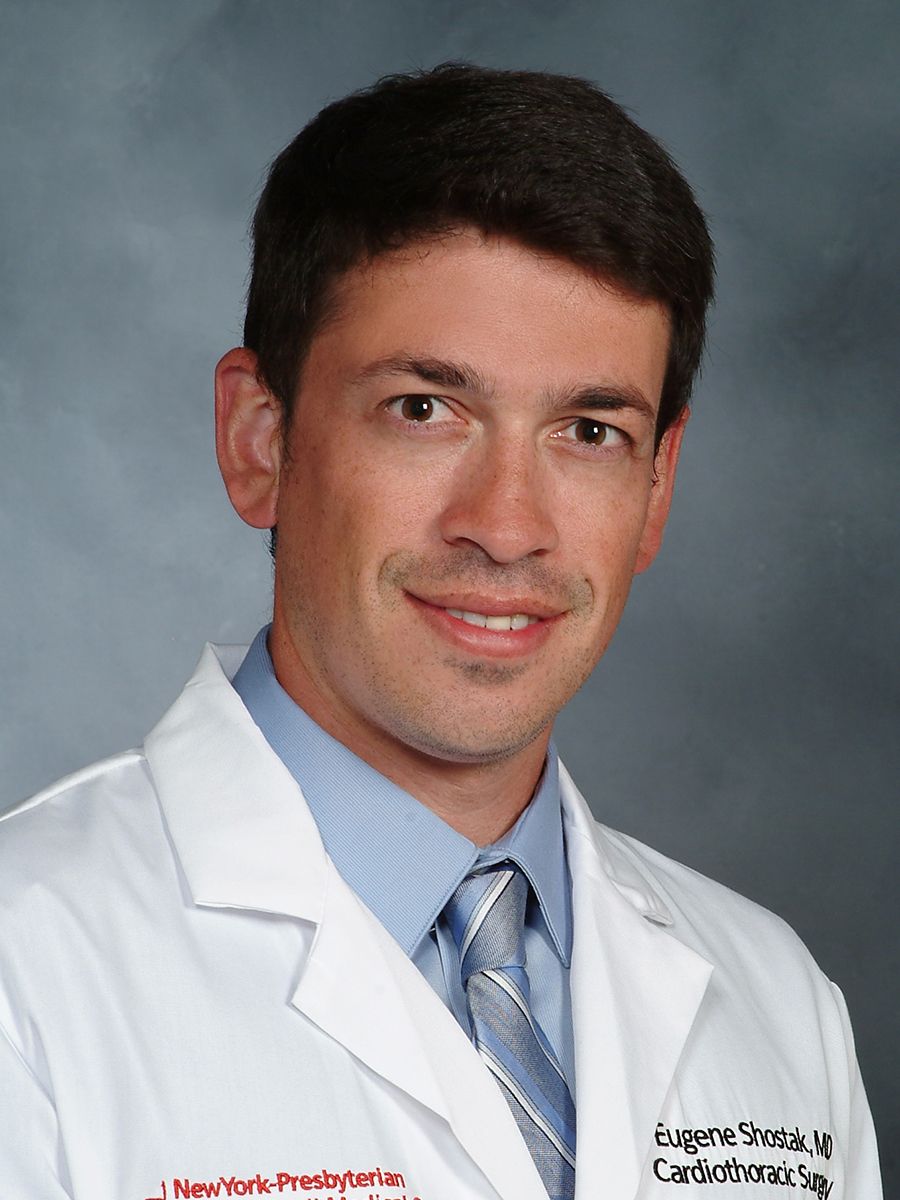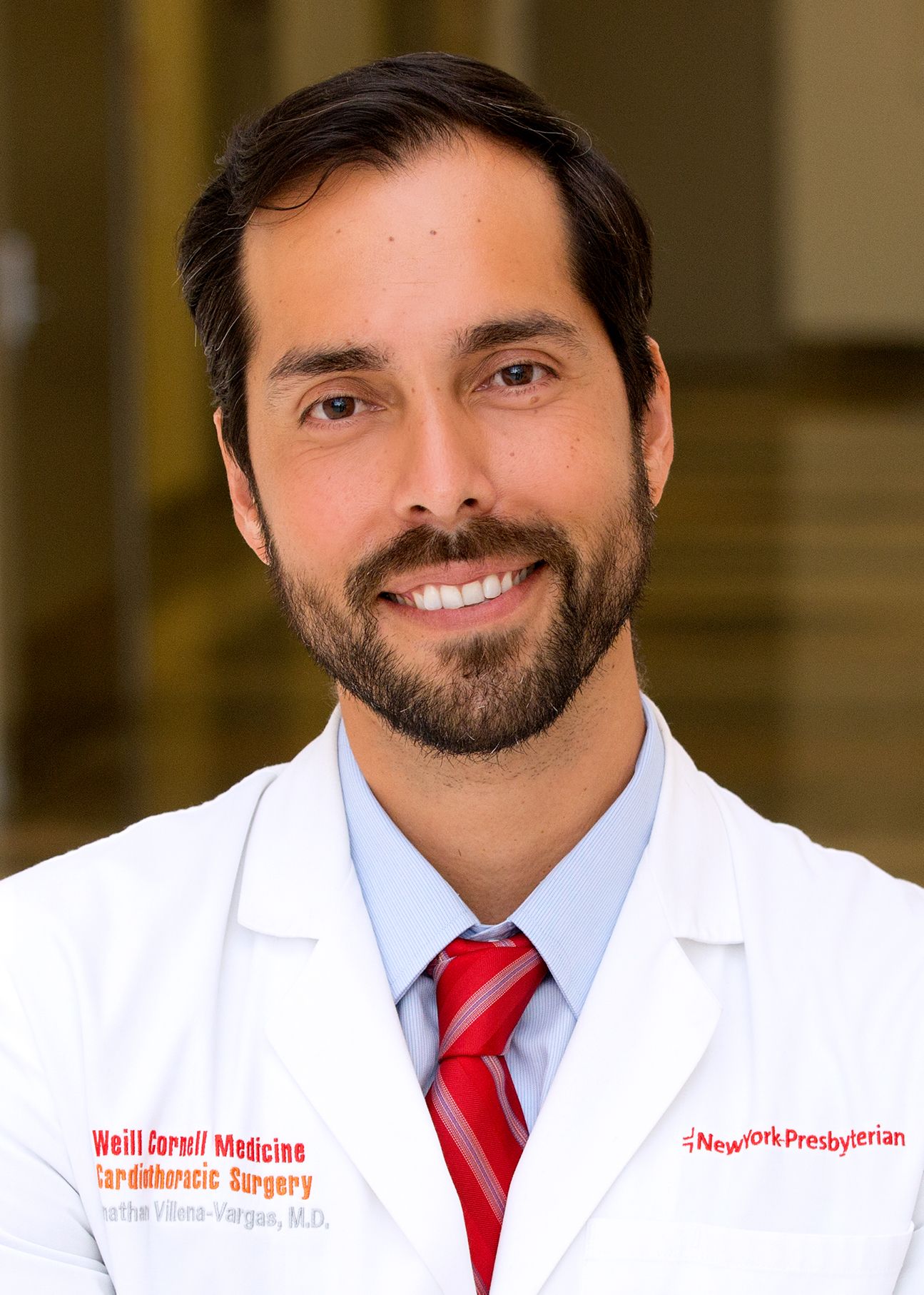
Dr. Eugene Shostak
For patients diagnosed with early-stage lung cancer, the journey from detection to treatment has traditionally been a prolonged and intricate process. However, Weill Cornell Medicine has introduced an innovative approach that is streamlining the field of lung cancer care. Led by thoracic surgeon Dr. Jonathan Villena-Vargas and interventional pulmonologist Dr. Eugene Shostak, this innovative technique aims to simplify the diagnosis and surgical treatment of lung tumors, providing patients with a more efficient and effective healthcare experience."
The new combined procedure, offers a comprehensive and integrated approach to lung cancer management. By combining cutting-edge technology, unified anesthetic administration, and seamless diagnostic and surgical capabilities, patients now benefit from a rational pathway that consolidates multiple procedures into a single session.
According to Dr. Villena, the key advantage of this approach lies in its ability to alleviate the burdensome nature of conventional lung cancer treatment. "By consolidating the necessary steps into one comprehensive session, we significantly reduce the physical and emotional strain on patients, sparing them from multiple visits and extended waiting periods".
This patient-centric model not only enhances the overall experience for individuals seeking care but also mitigates the financial toll associated with multiple healthcare visits and procedures. By accelerating the time between diagnosis and treatment, patients can receive prompt and tailored care, ultimately increasing the likelihood of positive outcomes.

Dr. Jonathan Villena-Vargas
Weill Cornell Medicine's approach is particularly well-suited for cases where suspicious nodules are detected through regular CT screening scans, often indicating early-stage (Stage I) lung cancer. While the procedure primarily focuses on these cases, there are instances where select Stage II tumors, or multiple nodules may also be amenable to this integrated approach. Despite the potential to reduce this concerning statistic, data indicates that less than 6% of eligible individuals undergo recommended annual lung cancer CT screening scans.
The patient, a 73-year-old woman, presented with a tumor deep within her right lung, as detected by a recent CT scan. While imaging alone cannot definitively confirm malignancy, her case offered a suitable opportunity to showcase the efficiency and precision of this new approach.
Under the guidance of Dr. Shostak, a robotic bronchoscopy was performed using state-of-the-art equipment, enabling enhanced visualization and precise biopsy of the tumor. Subsequently, a pathologist, rapidly analyzed the biopsy samples using advanced diagnostic techniques. Evaluation of the sample conclusively identified early-stage squamous cell cancer of the lung. The tumor area was then marked to enhance the precision and extent of surgical resection.
Throughout the procedure, the patient remained comfortably sedated, ready for immediate tumor removal if deemed necessary. Thoracic surgeon Dr. Villena then utilized robotic-assisted instruments to excise the tumor. In contrast to the extended waiting periods experienced at other institutions, the patient at Weill Cornell Medicine witnessed a swift resolution, undergoing discharge the following day.
Stage One lung cancer boasts a promising five-year survival rate, ranging from 70 to over 90%. As such, the significance of early detection through regular lung cancer CT screening scans cannot be overstated. Dr. Villena emphasized the importance of annual screenings for current and former smokers, underscoring their role as one of the most effective preventive measures available.
Weill Cornell Medicine's commitment to advancing medical innovation positions it at the forefront of lung cancer care. By redefining the treatment pathway for early-stage lung cancer patients, the institution aims to improve outcomes and enhance the overall well-being of individuals affected by this disease. With a patient-centric focus, streamlined procedures, and a multidisciplinary approach, Weill Cornell Medicine is setting a new standard in the field of lung cancer diagnosis and treatment.
As the importance of early detection and efficient treatment becomes increasingly evident, initiatives like the one pushed forward by Weill Cornell Medicine offer hope to individuals facing a lung cancer diagnosis. With continued research, technological advancements, and widespread adoption of comprehensive approaches, the fight against lung cancer is steadily advancing, inching closer to a future where timely and effective treatments are accessible to all, and specifically at-risk underserved populations with less access to multiple hospital visits.
The lessons learned from Weill Cornell Medicine's ongoing work emphasizes the critical role of regular lung cancer screening for at-risk individuals. By encouraging the uptake of annual CT screening scans among smokers and former smokers, the medical community aims to detect lung cancer at its earliest and most treatable stages, ultimately improving survival rates and ensuring better outcomes for patients.
In an era of transformative advancements, Weill Cornell Medicine's commitment to innovation, compassionate care, and patient well-being remains unwavering.